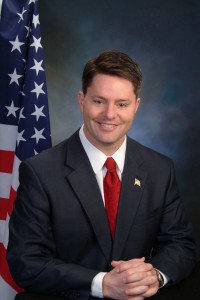 In my last post, I talked about some of my successes, and success can be a wonderful thing, but if you’re not careful, success can be your downfall.
In my last post, I talked about some of my successes, and success can be a wonderful thing, but if you’re not careful, success can be your downfall.
It sure took a toll on me. I tried to hide my vanity and pride, but deep down in my mind, I started to believe all the things lobbyists, other members, donors and conservative activists were saying about me. When you are a public official with power over funding and other member’s bills — along with all the laws people live by — folks tend to tell you what you want to hear.
Everyone tells you what a good job you’re doing, how smart you are, how thankful they are that you are in charge, or that nobody else has ever done or could ever do as good as you.
Of course in politics not everyone is singing your praises. In Missouri the Kansas City Star and St. Louis Post Dispatch were not very friendly to a conservative Republican like myself. I received plenty of bad press. Liberals, labor unions, and trail attorneys opposed to my agenda sent me thousands of emails and letters, which were not always flattering.
Another item that made enemies and allowed the press to attack me was my campaign consulting company. By 2004, I was spending more and more time helping friends with their campaigns, so I decided to start my own campaign consulting business. I didn’t work for any House campaigns or HRCC, but I helped some of my friends who wanted to move up to the state Senate or Congress. I also was able to work on Mitt Romney’s presidential race in 2008.
Between my political activities, legislative duties and straightforward ‘tell it-like-it-is attitude’ I started picking up quite a few new enemies, and they never hesitated to start a nasty rumor or provide a negative quote about me when they could. Oddly enough, most of my attacks came from the Republicans.
You are probably asking why I didn’t listen to my critics or at least think about their charges. The simple answer is most politicians develop thick skins, because critics say such terrible things about them, and constantly mis-characterize their motives. For me it was easy to chalk up all the negative comments and criticism to enemy hacks that hated me, because I had either beat them in the legislative chess game or defeated them in a campaign. I told myself that no matter what I did they would complain.
My experience has shown me how easy it is for powerful leaders to listen to the flattery and discount their critics when they are under fire.
Another negative consequence to the flattery and criticism a leader hears is they start putting everyone into two camps. You’re either for them or you’re against them, and if you’re critiquing them or even questioning them, you fall in the latter category. They become a bit paranoid when friends or innocent bystanders try to be honest and tell them the truth. Unfortunately, I feel this sometimes happened to me and it damaged a few of my relationships.
But let’s get back to the flattery. It slowly started affecting me. Not in the beginning; I knew what they were doing and I told myself not to pay attention to them, but flattery has a way of slowly creeping up and changing your attitude. (Or at least it did me)
 Have you ever heard the story about the frog that was placed in the pot of boiling water and immediately jumped out and survived?
Have you ever heard the story about the frog that was placed in the pot of boiling water and immediately jumped out and survived?
If you have, then you know that same frog didn’t fare so well when he was placed in a pot of cold water while the heat was slowly turned up until he was boiled to death and never even knew it. It’s very embarrassing to admit that this happened to me. Looking back on my time in the legislature I feel a bit like the frog that was slowly cooked to death and just didn’t feel the heat rising. In fact the warm water feels kind of good after awhile.
But be careful, because the warm water will kill you.
What I needed was balance. Take a moment and think about the word: BALANCE.
It’s a simple word that makes the whole world go round. Balance is required for the sun, moon, and stars to work like they do. It takes balance for us to walk, drive and function as human beings. Most importantly it takes balance in your life to have healthy relationships with your wife, kids, family, friends, co-workers and fellow citizens.
The biggest mistake I made was not having balance in my life. I worked too hard at politics and forgot about my family, friends, community and sometimes, the whole reason I went to Jefferson City in the first place. I remember telling my ex-wife that when the first campaign was over I would be home more. Then session started and I said after session I will be home more. Then I was gone working on redistricting and when that was done the next session had started, and after that I was working night and day to win the majority, and I told her once we won I would be home.
I didn’t realize winning the majority would take even more of my time or that everyone would be depending on us and I would become even more entangled in my political responsibilities. When she complained about me not mowing the grass, attending games, going to teacher conferences or hanging out with her, I felt she wasn’t considering how important my work was.
I mean, we were trying to change the state and I was working to make things better by passing all the legislation we believed in.
The truth is I was working on good things, but I was neglecting the most important things of life. She was all alone raising three kids, who didn’t see their dad enough; and unfortunately, my actions made them feel like my work was more important than they were.
 There was nobody happier than me when term limits ended my official position in 2008. I was tired of feeling responsible for all the problems that needing fixed in our state. I was also tired of getting beaten up in the press and having my enemies constantly trying to take me out. As a private citizen, I thought I would be able to be behind the scenes, work on my friend’s campaigns and get out of my opponents’ cross hairs.
There was nobody happier than me when term limits ended my official position in 2008. I was tired of feeling responsible for all the problems that needing fixed in our state. I was also tired of getting beaten up in the press and having my enemies constantly trying to take me out. As a private citizen, I thought I would be able to be behind the scenes, work on my friend’s campaigns and get out of my opponents’ cross hairs.
Unfortunately by that time, my marriage was in bad shape, and even though I was out of office the political attacks were intensified. In early 2009, we separated, and by October we were divorced. I tried to tell everyone it was a good thing for me, but deep down inside I was hurt. After all, we had been married almost 20 years and had raised three wonderful kids.
I was a 42-year-old “successful” divorced man, whose personal life was not turning out like I planned it. I had wonderful parents — my dad was a Baptist preacher — and they had given me a perfect childhood. I was a family values conservative Republican who was not supposed to have these types of problems.
I won’t go into details, but my life was not reflecting the teaching my parents had taught me, nor was I being the example I would want my kids to see.
The next post will be the conclusion to this story, and I will tell you what brought my political career to an end and how my troubles helped me turn my life around.
Continued (See below)…
For Rod’s full story, click the following links for Part 1, & Part 3; and be sure not to miss his video interview with the RP and his video Great Debate with Jeff Smith (hilarity alert!)). And don’t miss Jeff Smith’s piece on their unlikely friendship.









Leave a Reply